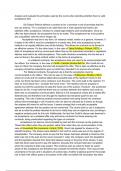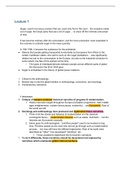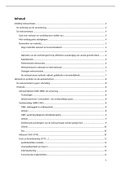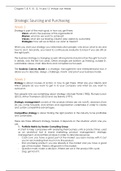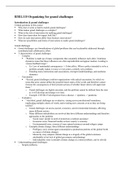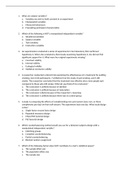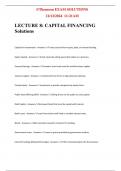Analyse and evaluate the principles used by the courts when deciding whether there is valid
acceptance (50)
Sir Edward Pollock defines a contract to be “a promise or set of promises that the
law can enforce.” For a contract to be valid there are 4 main aspects that need to be
satisfied; offer, acceptance, intention to create legal relations and consideration. Once an
offer has been placed, the acceptance has to be made. This acceptance has to be positive
and unqualified, with the mirror image rule.
Acceptance may be in any form, for instance verbal, written or a gesture. However, if
it states in the offer it must be completed in a certain way, then only acceptance by that
method or an equally effective one will be binding. This allows for contracts to be formed in
an effective manner. On the other hand, in the case of Yates Building v Pulleyn (1975), a
letter of acceptance sent by normal post rather than by the prescribed recorded or registered
delivery was held to be valid acceptance. This could introduce uncertainty into the law as it
was not done in the same method written in the terms of acceptance.
In unilateral contracts, the acceptance does not need to be communicated with
the offeror. For instance, in the case of Carlill v Carbolic Smoke Ball Co, Mrs Carlill did not
have to inform the company that she had accepted the offer. This is seen as effective as the
company should be expected to give out what they intended to to anyone who accepts.
For bilateral contracts, the general rule is that the acceptance must be
communicated to the offeror. This can be seen in the case of Felthouse v Bindley (1863)
where an uncle and his nephew talked about possible sale of the nephew’s horse to the
uncle, but there had been some confusion over the price. The uncle said to the nephew “If I
hear no more about him, I consider the horse mine.” The nephew took his property to
auction but told the auctioneer to keep the horse out of the auction. However , the auctioneer
forgot to do this. It was held that there was no contract between the nephew and uncle as
there was no acceptance communicated. Silence is not acceptance unless this is stated (Re
Selectmove) and therefore even though the nephew had remained quiet he was not
accepting. This rule of silence protects innocent parties from being forced into contracts
without their knowledge or will. However, this can also be criticised as it seems as though
the nephew did intend to sell the horse. It seems strange that a mutually acceptable
agreement between the two parties can be overturned. The courts claim to use a subjective
test as to what the parties intended to do but in reality they use an objective one, providing a
negative analysis point for this rule. Additionally, the fact that Cralill’s silence was deemed to
be acceptance, as a unilateral offer may add some confusion for those entering into
contracts, being uneducated regarding the types of contracts.
Acceptance can also be communicated by post and this is known as the postal rule.
These take effect when they are posted, rather than when they are communicated. In the
case of Household Fire Insurance v Grant (1879), Grant had applied for shares in the
plaintiff company. The shares were allotted to him and his name was put on the register of
shareholders. The company wrote to say that the shares had been allotted to Grant but the
letter was lost in the post and he never received it. Later, the company went into liquidation
and the liquidator claimed from Grant the balance owing on the price of his shares. It was
held that Grant was bound to pay the balance, because the contract had been completed
when the company’s letter was posted. This could be seen as unfair to Grant as wasn’t
aware of the acceptance and therefore was unaware he held the shares. This may provide
uncertainty in the law and in situations of contract law. Another analytical point for the postal
rule is that if the offeror posts a revocation of the offer, but before the revocation has been
acceptance (50)
Sir Edward Pollock defines a contract to be “a promise or set of promises that the
law can enforce.” For a contract to be valid there are 4 main aspects that need to be
satisfied; offer, acceptance, intention to create legal relations and consideration. Once an
offer has been placed, the acceptance has to be made. This acceptance has to be positive
and unqualified, with the mirror image rule.
Acceptance may be in any form, for instance verbal, written or a gesture. However, if
it states in the offer it must be completed in a certain way, then only acceptance by that
method or an equally effective one will be binding. This allows for contracts to be formed in
an effective manner. On the other hand, in the case of Yates Building v Pulleyn (1975), a
letter of acceptance sent by normal post rather than by the prescribed recorded or registered
delivery was held to be valid acceptance. This could introduce uncertainty into the law as it
was not done in the same method written in the terms of acceptance.
In unilateral contracts, the acceptance does not need to be communicated with
the offeror. For instance, in the case of Carlill v Carbolic Smoke Ball Co, Mrs Carlill did not
have to inform the company that she had accepted the offer. This is seen as effective as the
company should be expected to give out what they intended to to anyone who accepts.
For bilateral contracts, the general rule is that the acceptance must be
communicated to the offeror. This can be seen in the case of Felthouse v Bindley (1863)
where an uncle and his nephew talked about possible sale of the nephew’s horse to the
uncle, but there had been some confusion over the price. The uncle said to the nephew “If I
hear no more about him, I consider the horse mine.” The nephew took his property to
auction but told the auctioneer to keep the horse out of the auction. However , the auctioneer
forgot to do this. It was held that there was no contract between the nephew and uncle as
there was no acceptance communicated. Silence is not acceptance unless this is stated (Re
Selectmove) and therefore even though the nephew had remained quiet he was not
accepting. This rule of silence protects innocent parties from being forced into contracts
without their knowledge or will. However, this can also be criticised as it seems as though
the nephew did intend to sell the horse. It seems strange that a mutually acceptable
agreement between the two parties can be overturned. The courts claim to use a subjective
test as to what the parties intended to do but in reality they use an objective one, providing a
negative analysis point for this rule. Additionally, the fact that Cralill’s silence was deemed to
be acceptance, as a unilateral offer may add some confusion for those entering into
contracts, being uneducated regarding the types of contracts.
Acceptance can also be communicated by post and this is known as the postal rule.
These take effect when they are posted, rather than when they are communicated. In the
case of Household Fire Insurance v Grant (1879), Grant had applied for shares in the
plaintiff company. The shares were allotted to him and his name was put on the register of
shareholders. The company wrote to say that the shares had been allotted to Grant but the
letter was lost in the post and he never received it. Later, the company went into liquidation
and the liquidator claimed from Grant the balance owing on the price of his shares. It was
held that Grant was bound to pay the balance, because the contract had been completed
when the company’s letter was posted. This could be seen as unfair to Grant as wasn’t
aware of the acceptance and therefore was unaware he held the shares. This may provide
uncertainty in the law and in situations of contract law. Another analytical point for the postal
rule is that if the offeror posts a revocation of the offer, but before the revocation has been


